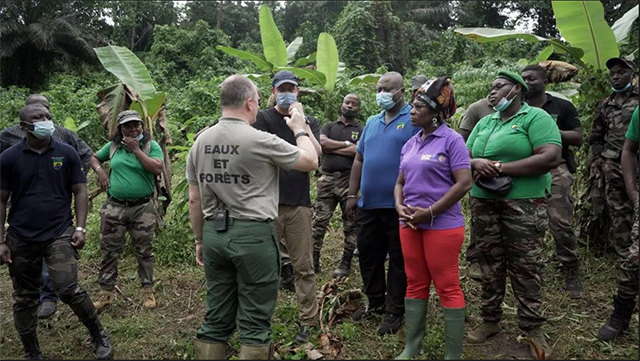Gabon To Pay $5 Million To Victims Of Elephants’ Destruction
Conflicts between humans and elephants in Gabon have become a national problem, and the government says it recognises the need to protect the means of subsistence of people, their security, and their standard of living.

The government of Gabon has provided five million US dollars in its 2022 budget as compensation for victims, especially farmers whose crops were destroyed by elephants.
Lee White, Gabonese Minister of Water and Forestry, announced the provision on Monday, May 30, while responding to allegations that he was more preoccupied with defending elephants than human beings whose means of livelihood the elephants have been destroying.
“The human-elephant conflict is very complex, and scientists have discovered that in the Lope National Park, the production of fruits has dropped by 80 per cent because the temperature has risen by 1 degree Celcius in less than 40 years, and rainfall has dropped. As a result, the elephants are hungry and leave the forest searching for fruits,” the minister explained.
He said rather than kill the marauding elephants; the government would consider building electronic barriers and other methods to prevent the elephants from invading farmlands.
The minister said the government recognises the absolute necessity to “protect the means of subsistence of people, their security and their standard of living”.
He said it was not true when people accused him and the government of taking sides with elephants against humans.
“This is not true, and we must look at the problem globally,” he said.
“In the past, we did not have a budget to compensate victims of the conflict between man and elephants. But, this year, we have included five million US dollars, the equivalent of 3,046,536,400 FCFA, in the national budget for the purpose.”
The conflict between humans and elephants has become a serious national problem in Gabon as agricultural parcels of land are regularly devastated by elephants to the detriment of the national population.
Accusing the government of “protecting animals in place of humans”, several movements and associations have been formed in Mekambo and Fougamou to fight for the interests of humans against elephant destruction.
Support Our Journalism
There are millions of ordinary people affected by conflict in Africa whose stories are missing in the mainstream media. HumAngle is determined to tell those challenging and under-reported stories, hoping that the people impacted by these conflicts will find the safety and security they deserve.
To ensure that we continue to provide public service coverage, we have a small favour to ask you. We want you to be part of our journalistic endeavour by contributing a token to us.
Your donation will further promote a robust, free, and independent media.
Donate HereStay Closer To The Stories That Matter




